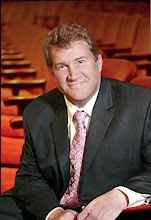
It always seems funny to me that the government has its own press releases. This was the most entertaining back when labs all over the country were investigated by the Office of Inspector General (OIG) billing for labs that weren't actually done. "Lab Scam" was in the news due to the many press releases by the OIG, which bragged with abandon about the millions of dollars recouped for the Medicare Trust. One laboratory paid the largest Medicare settlement in history, and it took on a permanent place in my slide deck that was part of my regulatory talk I did for hospitals, labs and doctor groups before working at Mission Pharmacal. Joking aside, the press releases raise awareness of what is illegal in the area of billing the federal government and raised awareness of why the correct billing codes must be used and audited internally to avoid liability.
It would be cool if we all did press releases when we thought we did a good job, like "Cusenbary Daughter Has Awesome Volleyball Game," or "Cusenbary Takes out Trash Without Being Asked by Wife." This time, it's the SEC who is tooting it's horn about the computer programmers who kept the fraud looking real for Bernie Madoff. I'm glad the SEC has found yet more criminals who were enticed by Bernie's scheme to defraud innocent investors. I just wish they had caught them years ago before people, companies and charities lost everything they had saved. The SEC's press release follows:
Washington, D.C., Nov. 13, 2009 -- The Securities and Exchange Commission today charged two computer programmers for their role in helping convicted Ponzi schemer Bernard L. Madoff cover up the fraud at Bernard L. Madoff Investment Securities LLC (BMIS) for more than 15 years.
The SEC alleges that Jerome O'Hara of Malverne, N.Y., and George Perez of East Brunswick, N.J., provided the technical support necessary to produce false documents and trading records, and took hush money to help keep the scheme going.
"Without the help of O'Hara and Perez, the Madoff fraud would not have been possible," said George S. Canellos, Director of the SEC's New York Regional Office. "They used their special computer skills to create sophisticated, credible and entirely phony trading records that were critical to the success of Madoff's scheme for so many years."
According to the SEC's complaint, filed in U.S. District Court for the Southern District of New York, Madoff and his lieutenant Frank DiPascali, Jr., routinely asked O'Hara and Perez for their help in creating records that, among other things, combined actual positions and activity from BMIS' market-making and proprietary trading businesses with the fictional balances maintained in investor accounts. O'Hara and Perez wrote programs that generated many thousands of pages of fake trade blotters, stock records, Depository Trust Corporation (DTC) reports and other phantom books and records to substantiate nonexistent trading. They assigned file names to many of these programs that began with "SPCL," which is short for "special."
A separate computer internally known as "House 17" was used to process BMIS investment advisory account data at the direction of Madoff, DiPascali and others. The SEC alleges that O'Hara and Perez knew that the House 17 computer was missing a host of functioning programs necessary for actual securities trading and reporting. According to the SEC's complaint, they recognized that the trades being entered into House 17 and the account statements and trade confirmations being sent to investors did not reflect actual trades.
The SEC alleges that O'Hara and Perez had a crisis of conscience in 2006 and tried to cover their tracks by attempting to delete approximately 218 of the 225 special programs from the House 17 computer. But they did not delete the monthly backup tapes. O'Hara and Perez then cashed out hundreds of thousands of dollars each from their personal BMIS accounts before confronting Madoff and refusing to generate any more fabricated books and records.
According to O'Hara's handwritten notes from the encounter, one of them told Madoff, "I won't lie any longer. Next time, I say 'ask Frank,'" meaning that Madoff should rely on DiPascali alone to create the false data and reports.
The SEC's complaint alleges that Madoff responded by telling DiPascali to offer O'Hara and Perez as much money as necessary to keep quiet and not expose the misrepresentations. O'Hara and Perez considered the offer and demanded a salary increase of nearly 25 percent along with one-time bonuses in late 2006 of more than $60,000 each. They stated to DiPascali at the time that they did not ask for more because a greater amount might appear too suspicious. DiPascali then managed to convince O'Hara and Perez to modify computer programs so that he and other 17th floor employees could create the necessary reports themselves.
This is the SEC's latest enforcement action concerning the Madoff fraud since the scheme collapsed last December. The Commission previously charged Madoff and BMIS, DiPascali, and auditors David G. Friehling and Friehling & Horowitz CPAs, P.C.. The SEC also charged certain feeders with committing securities fraud through a Ponzi scheme perpetrated on advisory and brokerage customers of BMIS. Madoff, DiPascali and Friehling have all pleaded guilty to criminal charges related to their conduct.
The SEC's complaint specifically alleges that O'Hara and Perez aided and abetted violations of Sections 10(b), 15(c) and 17(a) of the Exchange Act and Rules 10b-3, 10b-5 and 17a-3 thereunder, and Sections 204, 206(1) and 206(2) of the Advisers Act and Rule 204-2 thereunder. Among other things, the SEC's complaint seeks financial penalties and a court order requiring O'Hara and Perez to disgorge their ill-gotten gains.
The Commission acknowledges the assistance of the U.S. Attorney's Office for the Southern District of New York and the Federal Bureau of Investigation, with which the Commission has coordinated its investigation. The Commission's investigation is continuing.





















